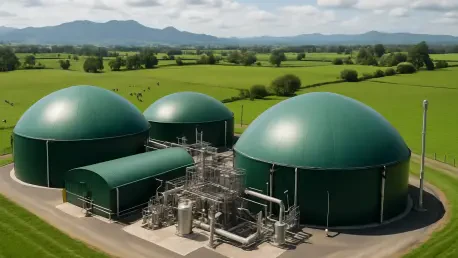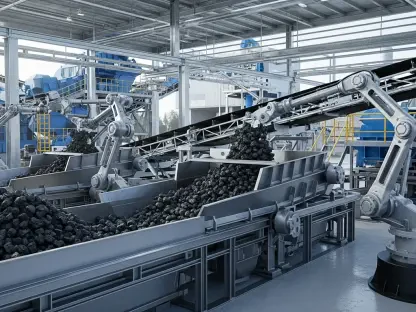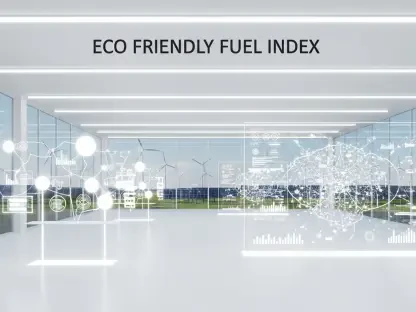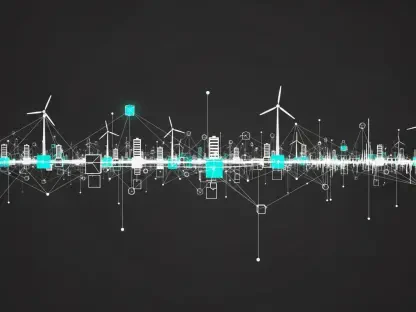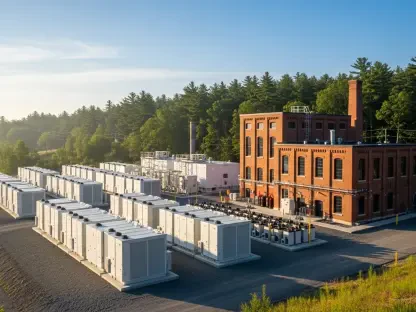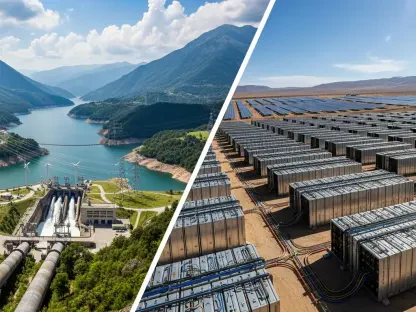Biogas emerges at the forefront of New Zealand’s energy revolution, presenting opportunities to enhance renewable energy capacity, encourage regional growth, and transition hard-to-electrify sectors. The nation’s energy ministers foresee biogas not only reducing reliance on dwindling natural gas supplies but also playing an instrumental role in New Zealand’s journey toward a resilient and sustainable energy framework. Spearheaded by new initiatives and regulatory adjustments, the country aims to bolster investment and integrate biogas within its broader energy strategy.
An Overview of New Zealand’s Biogas Industry
New Zealand’s current biogas industry, while still in its formative stages, serves a vital role in the broader renewable energy landscape. As traditional energy sources face increasing scrutiny from environmental and economic standpoints, biogas offers a promising alternative. This sector’s development is largely influenced by advanced technologies, shifting consumer preferences, and proactive regulatory measures set by government authorities. Key market players are enhancing their capabilities to align with these changes, fostering a more promising biogas environment.
Technological advancements have significantly contributed to the maturation of the biogas sector in New Zealand. Innovative methods and technologies in producing, storing, and utilizing biogas are transforming what was once a niche industry into a quintessential part of the nation’s energy matrix. Coupled with supportive policies, biogas is gaining recognition as a critical component in achieving the country’s renewable energy targets.
Key Trends and Market Dynamics
Emerging Trends and Opportunities
Recent times have witnessed an upward trajectory in the versatility and application of biogas technologies. Market demands push innovation, enabling sectors to utilize biogas as a key energy source while minimizing carbon footprints. This momentum not only offers new avenues for deployment but also creates opportunities for public-private partnerships, thereby driving sector growth and sustainability.
Evolving market conditions present a spectrum of opportunities for new technological deployments. The growing demand for low-emission technologies underpins efforts to address climate change. Establishing a stable market structure is imperative to facilitate enhanced biogas production and integration, making this sector ripe for new investments and innovations.
Market Analysis and Growth Projections
Statistics indicate a robust future for New Zealand’s biogas sector. Announcements and investments in infrastructure suggest a sustainable increase in biogas production and adoption, projecting its market share to rise significantly over the coming years. This growth is anticipated to rely heavily on technological advancements and comprehensive regulatory frameworks that prioritize sustainable practices.
Market projections reflect a promising outlook, with anticipated growth driven by increased government and private sector collaboration. With continued focus on innovative infrastructure and integration strategies, the biogas sector is poised to transform into a cornerstone of New Zealand’s renewable energy future.
Challenges and Barriers
The biogas sector, while promising, encounters numerous challenges that require strategic resolution. Technological limitations present significant obstacles, where scalability and efficiency of biogas systems remain areas of concern. Overcoming these technological hurdles is essential for fostering greater adoption and utilization of biogas as a renewable resource.
Regulatory barriers also present substantial hurdles, necessitating coordinated efforts to harmonize policies and streamline compliance. Market dynamics pose additional challenges as consumer perspectives and competitive forces shape industry trajectories. Formulating robust strategies that address these multifaceted challenges will be crucial in achieving substantial growth.
Regulatory Environment
New Zealand’s regulatory landscape profoundly impacts the evolution of the biogas industry. Legislative frameworks govern the production, distribution, and utilization of biogas, necessitating compliance with established standards. Recent revisions propose the incorporation of biomethane pipeline services into existing systems, aiming to ease market entry for investors and offer clarity in regulation.
Governmental strategies and policies create a fertile ground for progress and development. These regulatory moves are instrumental in addressing uncertainties, thus catalyzing investment and innovation. By nurturing a positive regulatory environment, the potential for biogas as a renewable energy powerhouse can be fully realized.
Future Outlook and Emerging Opportunities
The future of the biogas industry in New Zealand is steeped in optimism, buoyed by potential disruptors and emerging technologies. Innovations in capturing and utilizing biogenic carbon dioxide open avenues for emissions reduction and resource maximization. With a focus on developing low-emissions technologies, biogas stands poised to make significant contributions to New Zealand’s energy sector.
Insights into future trends indicate numerous areas for growth and reinvestment. By effectively leveraging new technologies, consumer shifts, and regulatory initiatives, the biogas sector is set to undergo a transformative phase that fosters a more sustainable and energy-independent nation.
Conclusion and Recommendations
The findings of this report underscore the considerable potential the biogas industry holds in shaping New Zealand’s energy landscape. While obstacles remain, forward-looking strategies focusing on technological, regulatory, and market solutions suggest a path toward sustainable expansion. For stakeholders, these insights translate into tangible opportunities for development, investment, and collaboration, driving the biogas sector toward a pivotal role in achieving energy independence and sustainability.
